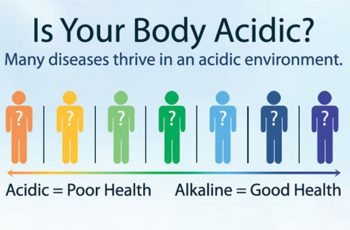There are many foods that people claim can help relieve constipation. Oatmeal is one of those foods. But does oatmeal work to help with constipation? This blog post will look at the evidence to answer that question. We’ll also discuss how oatmeal can help and some ways to add it to your diet. By the end of this post, you’ll know whether or not oatmeal is good for constipation and how to make it work for you.
What Makes Oatmeal a Special Grain?
Oatmeal is most often thought of as a breakfast food, but it can be a helpful tool in solving constipation problems. This humble grain is packed with fiber, essential for maintaining regularity. In addition, oatmeal is a whole grain containing all of the nutrients and fiber in the original grain kernel.
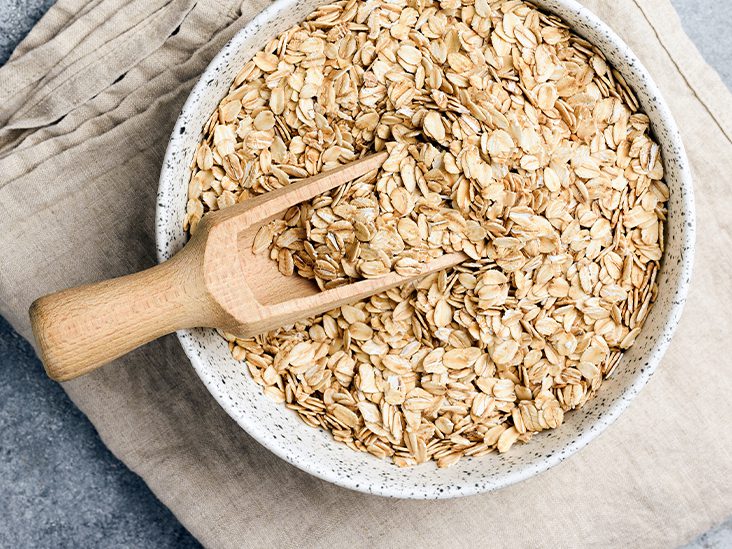
Does Oatmeal Contain Fiber?
Like brown rice and wheat bread, oats are fiber-rich foods. Soluble fiber dissolves in water and helps to form a gel-like substance in the gut, which slows down digestion and can help to reduce cholesterol levels. Insoluble fiber, on the other hand, does not dissolve in water and helps add bulk to the stool, aiding bowel movements.
In addition to being high in fiber, oatmeal is also a good source of protein and vitamins. For people who suffer from constipation, adding oatmeal to their diet can be a helpful way to treat constipation. However, it’s important to remember that oatmeal should only be part of a larger constipation relief plan that includes other high-fiber foods and plenty of fluids. If you’re still struggling with constipation after making dietary changes, it’s always best to consult a doctor or other medical professional.
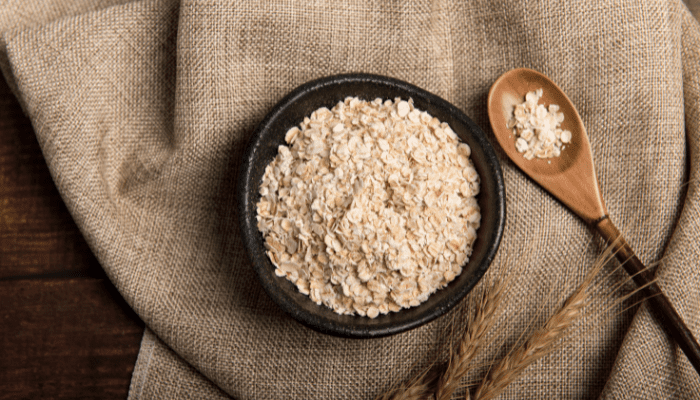
How Oatmeal Works
Oatmeal works by absorbing water and expanding in your stomach. This helps to add bulk to your stool and makes it softer and easier to pass. Oats are also a good source of soluble fiber, which dissolves in water and forms a gel-like substance. This substance helps slow digestion and keeps you full for longer. Soluble fiber also helps bind the water and other ingredients in your stool, making it softer and easier to pass.
The insoluble fiber in oats also helps to add bulk to your stool and prevents inflammatory bowel disease. Insoluble fiber does not dissolve in water but absorbs water as it moves through your digestive system. This helps to add softness and bulk to your stool, making it easier to pass.
Oats also contain lignans and plant estrogens that can help regulate digestion. Lignans can also help to reduce the risk of colon cancer.
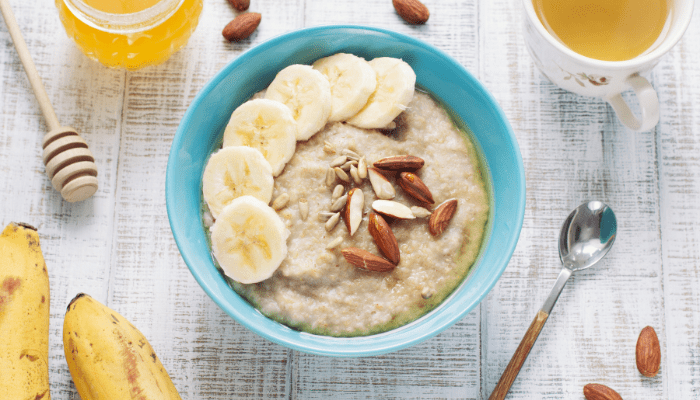
Is Oatmeal Good for Constipation?
If you are constipated, eating oatmeal can help to relieve your symptoms. When constipates, you have difficulty passing stool, or your stool is hard and dry. This can be uncomfortable and may cause bloating or abdominal pain. Adding oatmeal to your diet can help to soften your stool and make it easier to pass.
The recommended daily fiber intake is 25 grams for women and 38 grams for men. One cup (80 grams) of dry oats contains 7 grams of fiber. Eating just one cup of oatmeal daily can help you reach the recommended fiber. So, is oatmeal good for constipation? Yes, oatmeal is good for regulating your bowel movements.
In addition to its high grams of fiber content, oatmeal also contains lignans. Lignans are plant compounds that have estrogenic activity. They can bind to estrogen receptors in the body and mimic the effects of this hormone. Some studies have shown that lignans may help to protect against certain types of cancer, such as breast cancer.
Lignans may also help reduce heart disease risk by lowering cholesterol levels and inflammation. One cup (80 grams) of dry oats contains 1 gram of lignans. Including oatmeal in your diet is an easy way to increase your lignan intake.
Another benefit of oatmeal is that it is a good source of vitamins and minerals, such as magnesium, phosphorus, zinc, manganese, iron, selenium, copper, and B vitamins. These nutrients are essential for overall health and well-being. For example, they play a role in energy production, cell growth and repair, immunity, and more.
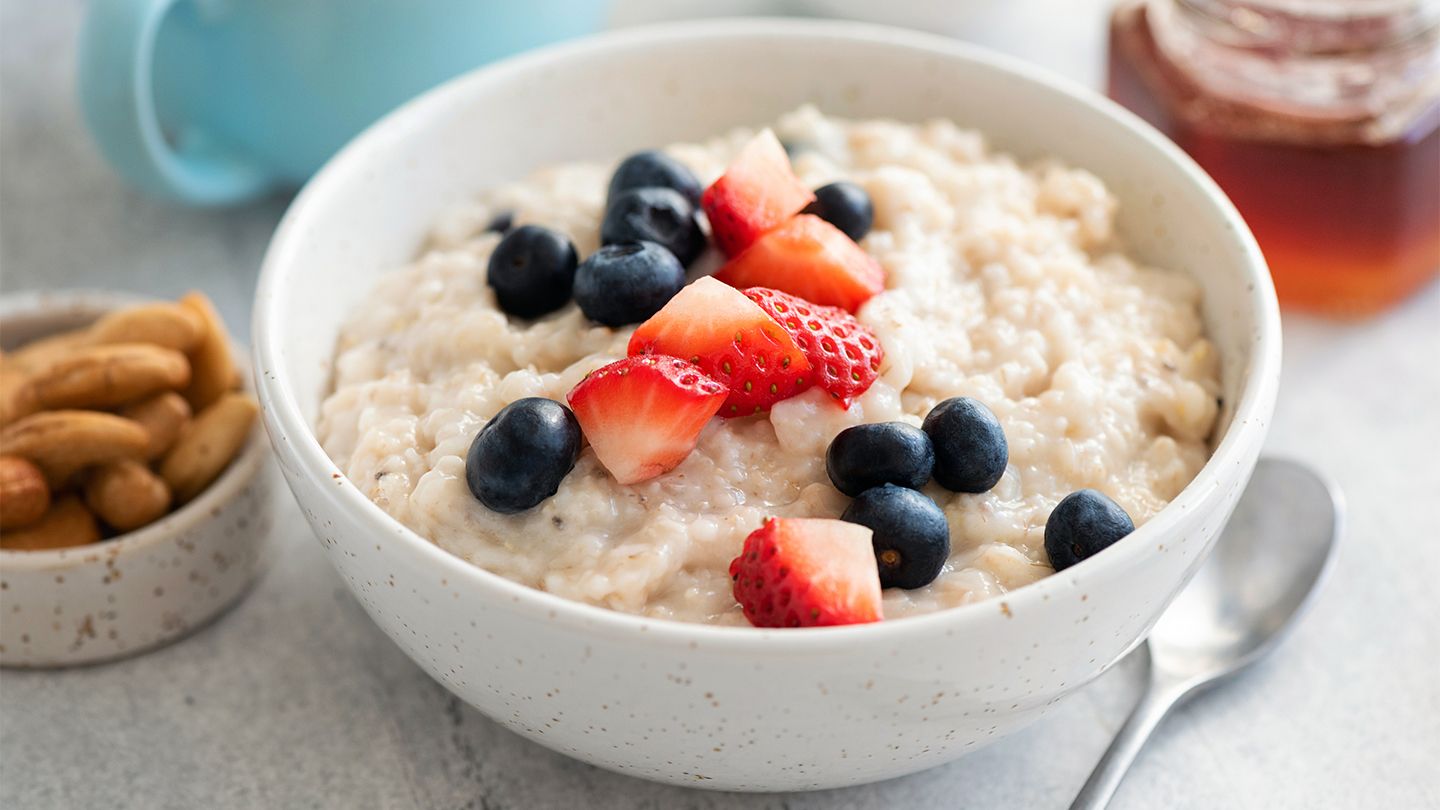
Can Oatmeal Cause Constipation?
Yes, it’s possible for oatmeal to cause constipation if you are not used to eating it. Moreover, too much soluble fiber could also lead to constipation.
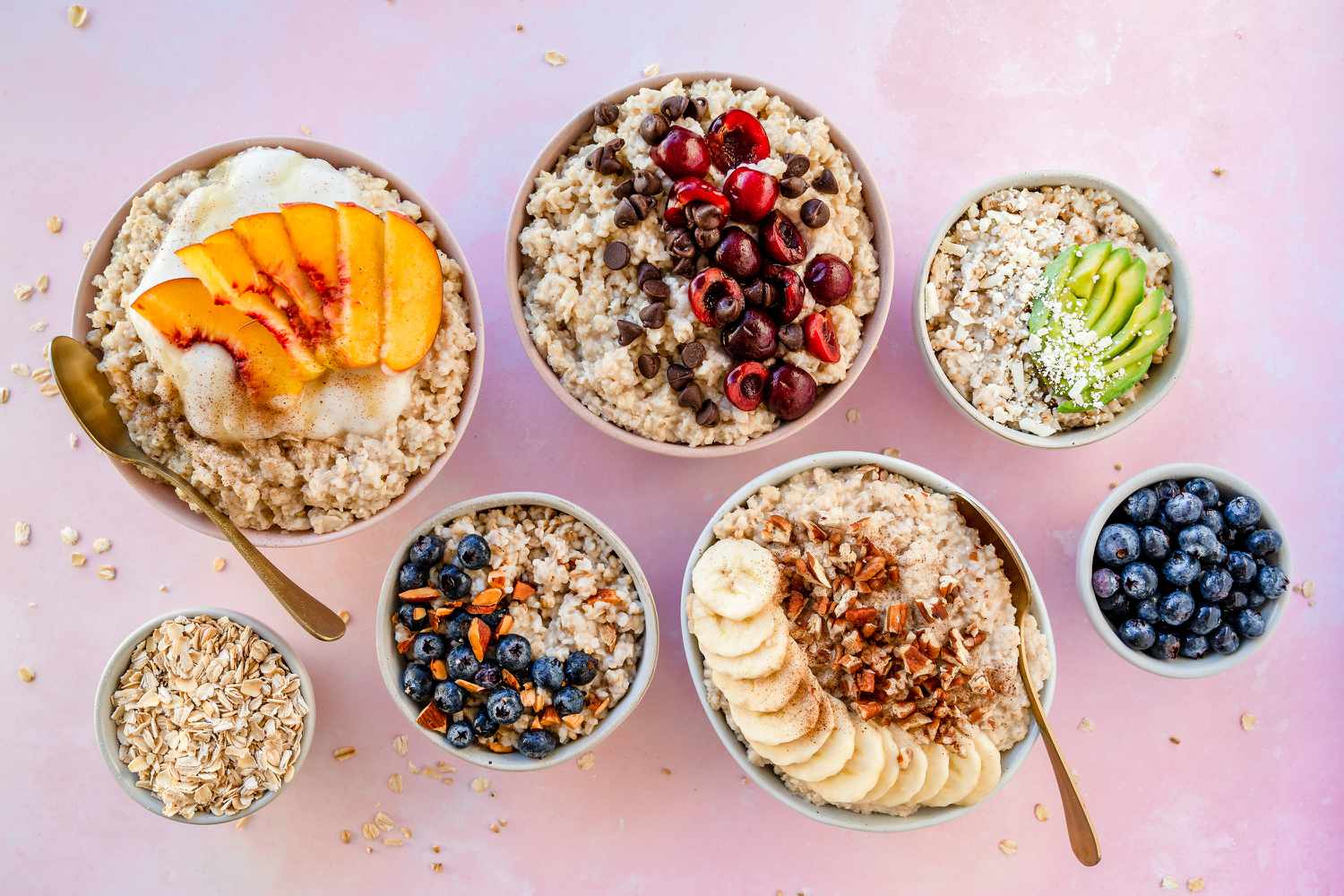
What Type of Oatmeal is Good for Constipation?
Old-fashioned Oats
Old-fashioned oats are a type of whole grain that is high in fiber. Fiber is an important nutrient that helps to keep the digestive system healthy. For example, for people who suffer from constipation, fiber can be a helpful tool in relieving symptoms. In addition, when added to the diet, fiber adds bulk to the stool and makes it easier to pass.
Old fashioned oatmeal is a good soluble fiber source, dissolves in water and forms a gel-like substance. This gel-like substance helps to lubricate the intestines and makes it easier for stool to pass. In addition, old-fashioned oats contain a type of insoluble fiber called beta-glucan or raw oats.
Beta-glucan helps to absorb water and adds bulk to the stool, making it less likely to become complex and difficult to pass. For best results, it is recommended to add old-fashioned oats to your diet gradually, starting with a small amount and slowly increasing over time.
Rolled Oats
Rolled oats are the most common type of oatmeal. They are made by steaming and rolling whole oats. Rolled oats have a lower fiber content than steel-cut oats but a higher fiber content than instant oats. They also have a lower cooking time than steel-cut oats but a higher cooking time than instant oats. Rolled oats are a good option when you treat constipation because they have a moderate amount of fiber and a shorter cooking time.
Steel-Cut Oats
Steel-cut oats are less processed than rolled oats. They are made by cutting whole oats into pieces with steel blades. Steel-cut oats have a higher fiber content than rolled oats but a lower fiber content than instant oats. They also have a higher cooking time than rolled oats but a lower cooking time than instant oats. Steel-cut oats are a good option for people with constipation because they have a high amount of fiber and a shorter cooking time.
Instant Oatmeal
Instant oatmeal is the most processed type of oatmeal. They are made by precooking and then dehydrating rolled or steel-cut oats. Instant oats have a lower fiber content than rolled or steel-cut oats but a higher fiber content than quick or minute oats. They also have the shortest cooking time for all types of oatmeal. Instant oats are better than rolled or steel-cut oats for people with constipation because they have less fiber and take longer to cook.
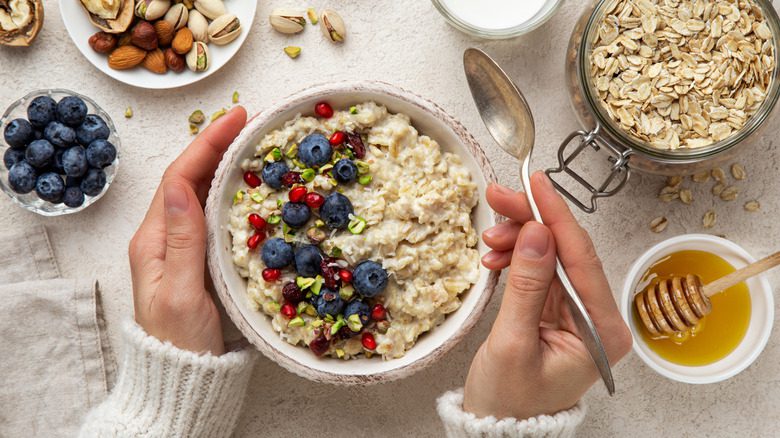
How to Incorporate Oatmeal Into Your Diet
If you’re not used to eating oatmeal, slowly add a half cup to your diet daily. You can increase your intake gradually over time as your body gets used to the additional fiber. Be sure to drink plenty of water throughout the day to keep things moving smoothly—aim for eight glasses, or 64 ounces total.

You can eat oatmeal plain or sweeten it with fresh fruit, honey, or brown sugar. You can also add nuts or dried fruit for extra flavor and texture. Experiment until you find a combination that you like best. The important thing is to ensure you’re getting enough fiber each day to stay regular and avoid constipation problems.

What Foods to Avoid When I’m Constipated?
1. Dairy products: Dairy products like milk, cheese, and yogurt can worsen constipation. This is because they contain high levels of lactose, which can be the root cause of digestion issues. If you’re constipated, try avoiding dairy or replacing it with non-dairy alternatives like almond milk or coconut yogurt.
2. Processed foods: Processed foods are low in fiber and full of additives that can contribute to constipation. If you’re having trouble going to the bathroom, cut back on processed foods and eat more whole foods like fruits, vegetables, and whole grains instead.
3. Caffeine: Caffeine is a stimulant that can make it challenging to have a bowel movement. If you’re struggling with irritable bowel syndrome, limit your intake of caffeine-containing beverages like coffee, tea, and energy drinks.
4. Alcohol: Alcohol can dehydrate your body and make constipation worse. If you’re having trouble going to the bathroom, cut back on alcohol or avoid it altogether.
5. Sugar: Sugar can contribute to constipation by binding water in the intestine and making stool harder to pass. If you’re struggling with constipation, try cutting back on sugary foods and drinks.

Final Thoughts
In conclusion, oatmeal is an excellent choice for people with constipation as it is a good source of fiber and is easy to digest. Rolled oats and steel-cut oats are the best options for those struggling with constipation because they have higher fiber and shorter cooking times. When adding oatmeal to your diet, start slowly and increase your intake gradually.
Additionally, avoid foods like dairy, processed foods, caffeine, alcohol, and sugar, which can worsen constipation. With a few simple changes to your diet, you should be able to manage your constipation symptoms and improve your overall digestive health.
Frequently Asked Questions
Does oatmeal loosen stool?
Oatmeal is a great way to manage diarrhea because it contains soluble fiber. This type of food works by attracting water and turning it into a gel during digestion, which slows down the rate at which we break down foods in our body and adds bulk when going number two.
Can oatmeal cause bloating and constipation?
Oatmeal can be a great source of fiber and has many other health benefits. However, it might cause bloating in some people because they aren’t used to eating oat bran or have recently started consuming this type of food as their diet changes over time–usually, after two weeks, you’ll start feeling better.
How long after eating oatmeal will I poop?
Oats are a great source of slow-release carbohydrates, which help keep your blood sugar level steady for hours. They also contain fiber, so you stay full longer than if consumed with simple sugars or fats! Oatmeal can take as little time (2 to 3 hrs) depending on how quickly it’s digested.
Will scrambled eggs help constipation?
The eggs you eat can relieve your constipation. Eggs are packed with proteins, which may help alleviate the discomfort of bloating and hardening of stool that often comes with it!



